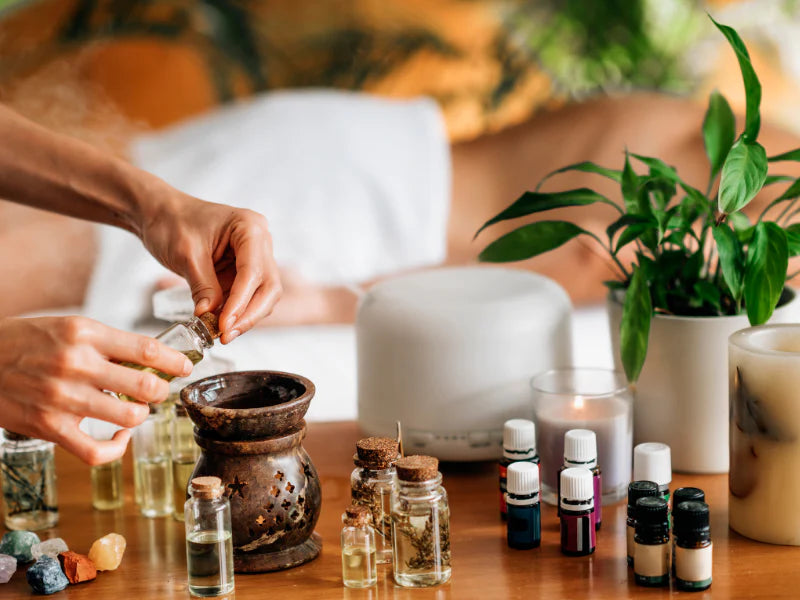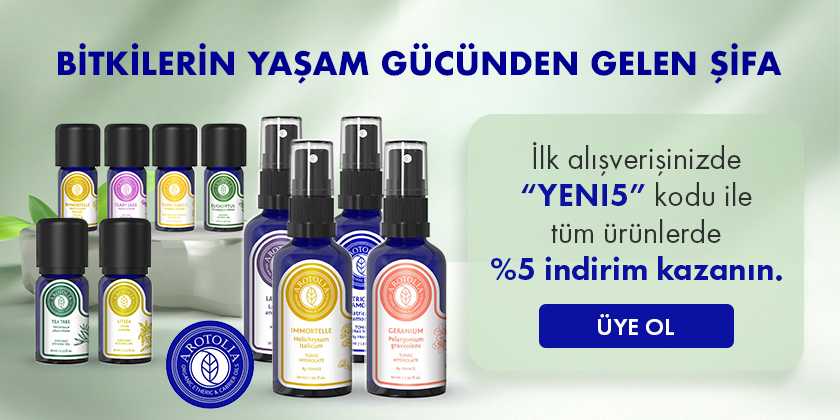
Aromatherapy in Intensive Care Cardiac Patients
According to the World Health Organization, coronary artery disease is the most common heart disease in the world and causes a serious public health problem. This disease, which is increasingly common in our country, can cause complications in the vessels that feed the heart and result in sudden death. According to the latest statistics, there are 2 million coronary artery patients in Turkey.
Sleep is one of the vital activities required for a person to maintain their mental and physical health. Patients in intensive care units, especially coronary patients, experience sleep disorders for various reasons. Various factors such as pain caused by the disease, drug treatments, nursing interventions, loss of privacy, and fear of death can prevent them from falling asleep and sleeping uninterruptedly. Since these patients are awake for much longer than they should be, they cannot benefit from the therapeutic effects of sleep. As a result, their immune systems, wound healing process, cognitive activities and stress levels are negatively affected, creating a serious obstacle to the treatment process. The sleep disorders and anxieties of patients with increased anxiety levels mutually feed each other and lead the patient to a dead end. Sleep disorders are associated with increased blood pressure and heart rate, which can increase the risk of coronary patients developing more cardiovascular problems. Therefore, it is very important to avoid sleep problems as much as possible and even improve the quality of their sleep, especially in patients with heart-related diseases.
It is stated that drugs used to treat sleep disorders cause irreversible side effects such as addiction and do not provide adequate sleep. Therefore, researchers are working on different approaches that are highly reliable and have few side effects in order to prevent this problem. One of these is aromatherapy applied by inhalation. One of the most commonly used aroma plants in aromatherapy is lavender. Lavender is the least toxic and allergenic of essential oils. It also has a positive effect on sleep quality due to its relaxing, calming and muscle relaxant effects. One of the main components of lavender is 'linalyl acetate', and thanks to this component, lavender has narcotic effects. Although studies on aromatherapy treatment with lavender are conducted in various parts of the world, the inadequacy of research on this subject in Turkey prompted researchers at Dokuz Eylül and Gaziantep Universities to take action. They started to examine the effect of lavender essential oil on both the sleep quality and anxiety levels of patients in coronary intensive care units.
The participants were patients hospitalized in the Coronary Intensive Care Unit of Gaziantep University Şahinbey Research Hospital. Data were collected using scales that determined the patients' sleep and anxiety levels before the aromatherapy sessions. At the end of the 15-day study, all scales were repeated for all participants. In addition, patients were divided into two groups, one group was inhaled with lavender essential oil, while the other group did not receive any aromatherapy, thus creating a control group. All data were analyzed using computer programs, and the findings confirmed the results of previous studies.
There was a significant improvement in the sleep duration and quality of the patients who received the aromatherapy session. In addition, the analyses showed that the anxiety level of the aromatherapy intervention group gradually decreased, while the anxiety level of the control group gradually increased as predicted. These results were promising for the patients, as anxiety both affects the well-being of the patient and triggers sleep disorders. The researchers state that lavender essential oil is a non-invasive, cheap, easily applicable, cost-effective, independent nursing intervention that can be applied in intensive care units, but they also emphasize that more studies need to be done in Turkey!
SOURCE
Nursing in Critical Care- Effects of aromatherapy on sleep quality and anxiety of patients



